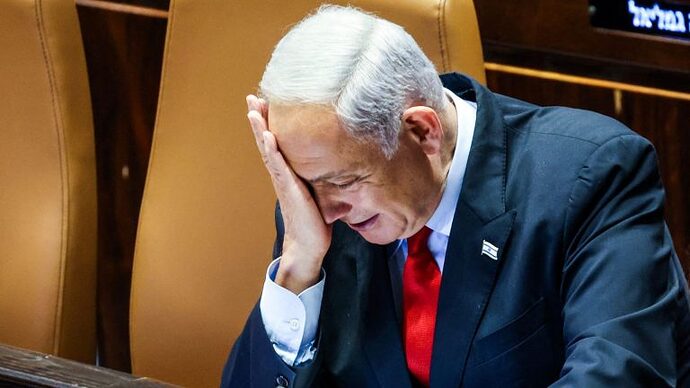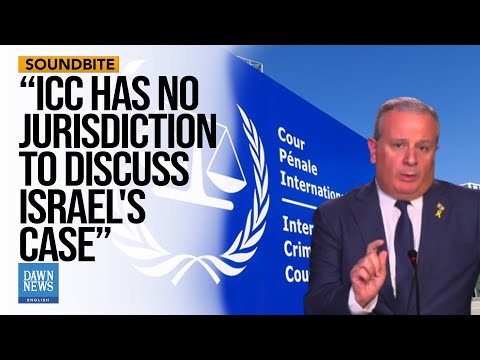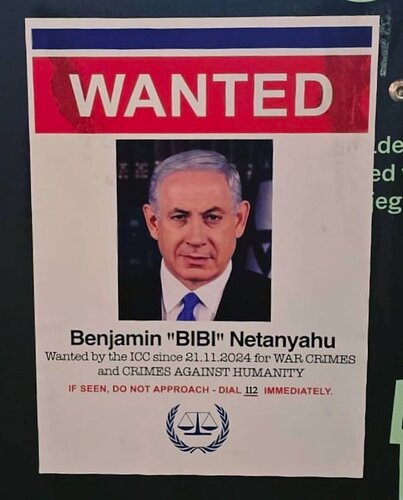Israeli Prime Minister Benjamin Netanyahu faces arrest if he travels to the UK, after an international arrest warrant was issued for him, Downing Street has indicated.
A No 10 spokesman refused to comment on the specific case but said the government would fulfil its "legal obligations".
On Thursday the International Criminal Court (ICC) issued an arrest warrant for Netanyahu, along with Israel's former defence minister Yoav Gallant, over alleged war crimes in Gaza.
The court's member countries, including the UK, have signed a treaty that obliges them to act on arrest warrants.
Asked whether Netanyahu would be detained if he entered the UK, the prime minister's official spokesman refused to comment on "hypotheticals".
However, he added: "The government would fulfil its obligations under the act and indeed its legal obligations."
This refers to the International Criminal Court Act 2001, which states that if the court issues a warrant for arrest, a designated minister "shall transmit the request… to an appropriate judicial officer", who, if satisfied the warrant appears to have been issued by the ICC, "shall endorse the warrant for execution in the United Kingdom".
The PM's spokesman confirmed the government stands by the process outlined in the act and would "always comply with its legal obligations as set out by domestic law and indeed international law".
He was unable to confirm which secretary of state would be involved in the process and did not answer questions about whether the government was seeking legal advice from Attorney General Lord Hermer - the UK's top lawyer - in relation to the case.
Generally, arrest warrants and extradition requests from around the world must be sent to a special team in the Home Office for basic checks before they are acted on.
The UK’s legislation on the ICC says that the courts have the final say on whether an arrest and “delivery” of a suspect should go ahead.
Asked whether the PM was still willing to talk to Netanyahu, the PM's spokesman said it was "obviously important that we have a dialogue with Israel on all levels", describing the country as "a key partner across a range of areas".



